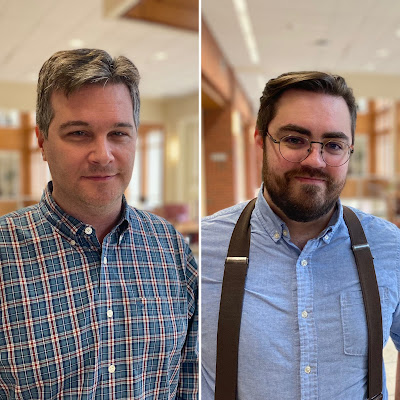NSF CAREER AWARD: OU Engineer Aims to Mitigate Impact of Climate Uncertainty
During the five-year project, Yang will seek to develop an integrated solution that addresses the variability and uncertainty of precipitation and develop a novel artificial intelligence and data mining tool to aid reservoir operators’ decision-making.
"We use machine learning and artificial intelligence tools to detect precipitation patterns and improve subseasonal-to-seasonal forecasts so that we can better inform the future operation of reservoirs,” Yang said.
Over the past four decades, significant scientific advancements have been made in forecasting, linear programming, algorithm optimization, and simulation model development to guide reservoir operations. However, reservoirs must now behave differently with infrastructure that is sometimes 70-100 years old and ever-changing climate variability including global precipitation.
To avoid reservoir failures, dam operators need two essential items: accurate and reliable hydrological forecasts with extended lead times, and powerful and adaptive tools to assist real-time, flexible decision-making about how much water to release and when.
“Dam operators need tools to prevent problems like those seen in recent years,” Yang said. “For example, in 2020, two reservoirs in Michigan overtopped because of problematic forecasts. With better forecasting tools, the operators could have lowered the water level and created a buffer before the heavy rainfall arrived.”
Yang’s research will leverage state-of-the-art deep learning models to discover and correct the errors associated with current precipitation forecasts from multiple forecasting models in the North American Multi-Model Ensemble dataset.
Next, he will conduct large-scale validation experiments, including more than 671 watersheds, and reservoir simulations including more than 316 dams across the U.S. The artificial intelligence and data mining models will be comprehensively tested in collaboration with the U.S. Bureau of Reclamation and the U.S. Army Corps of Engineers.
“We will collaborate with several reservoir agencies at the state and federal level to test our decision-making support tools, which intensively use our improved forecast data and integrated physical and artificial intelligence models,” Yang said. “Ultimately, this will help water managers better respond to and mitigate the impacts of potential weather extremes and climate uncertainties.”
In addition to the research component of this project, Yang plans to host a Water Festival exhibit at the National Weather Museum and Science Center, allowing visitors to witness the importance of hydrology, meteorology, water resources management and the impacts of extreme weather and climate.
An educational component of the project will provide student training using advanced active learning technologies. “This training, which includes computer programming in Python, complements the intensive research connecting big data, artificial intelligence, climate change, and infrastructure operation in the interdisciplinary fields of environmental science, hydrology, water resources, meteorology and hydro-climatology sciences,” Yang said.
About the Project
The project, “CAREER:CAS-Climate: Forecast-informed Flexible Reservoir System Modeling Enabled by Artificial Intelligence Algorithms Using Subseasonal-to-Seasonal Hydro-climatological Forecasts,” is funded by the National Science Foundation, award no. 2236926. The project begins Sept. 1, 2023, and is expected to conclude on Aug. 31, 2028.
By Josh DeLozier, Office of the Vice President for Research and Partnerships



